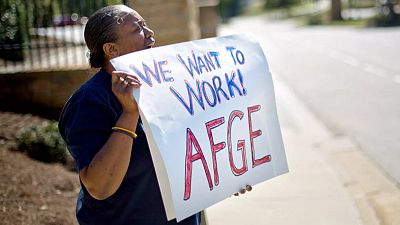USA
The unemployment rate among Black Americans hit 7,2% in July, the highest level since the peak of the Covid-19 pandemic in October 2021.
The rate is markedly higher than the national average of 4.2%, according to new data by the U.S Department of Labour released August 1.
Women have been hit hardest, with more than 300,000 Black women losing their jobs in the first half of the year.
Experts point to 3 key factors that have contributed to the troubling job losses:
1. Warning sign for a weakening economy.
Rising Black unemployment rates have previously been a precursor to a slowing economy overall. More Black Americans are in temporary and low-paying jobs compared to their white counterparts, which means that they are laid off first when the economy begins to weaken.
“Black workers, and particularly Black women, show up as a canary in the coal mine, giving a picture of what may happen to everyone else later,” Jessica Fulton, a senior fellow at the Joint Centre for Political and Economic Studies.
President Donald Trump’s tariff regime has increased costs for businesses, which has made some companies put hiring plans on hold, according to recent surveys by the U.S Federal Reserve. The rising unemployment among Black Americans could be a sign of an incoming recession, experts warn.
2. Trump axing Diversity, Equity and Inclusion.
Since his first day in office, Trump has worked tirelessly to purge the federal government of Diversity, Equity and Inclusion programs. The President’s anti-DEI agenda has trickled down to the private sector as well, with some of the U.S.´s biggest employers, Meta, Walmart and McDonald's axing efforts to promote racial diversity in their workforce.
DEI rollbacks could play a role in the recent unemployment figures by creating an “antagonistic posture against the Black workforce", Andre Perry, a senior fellow and director of the Center for Community Uplift at the Brookings Institution, told Bloomberg.
3. Federal job cuts.
Trump has been adamant about shrinking the government workforce, which has disproportionally impacted Black workers, who are overrepresented among federal employees relative to their share of the overall workforce.
Among the efforts, Trump shut down the Department of Education with large repercussions for the country’s educators, 30% of whom are Black.
”The layoffs at the federal level where Black people are more represented, the impacts of the tariffs, particularly on small businesses that hire Black women, and the overall use of DEI as a slur, which may be contributing to a lack of hiring of Black women, all of these factors are probably at play," Perry said.














01:50
Libya grants foreign oil companies exploration licences
01:56
AI adoption rises in governments, but citizen satisfaction lags
01:13
Arctic tensions rise as Russia warns over Greenland militarisation
Go to video
DR Congo denies selling off mineral wealth under US deal
Go to video
Guinea: Heavy gunfire reported near central Prison in Conakry
Go to video
Ebo Taylor, Ghanaian highlife icon, dies at 90